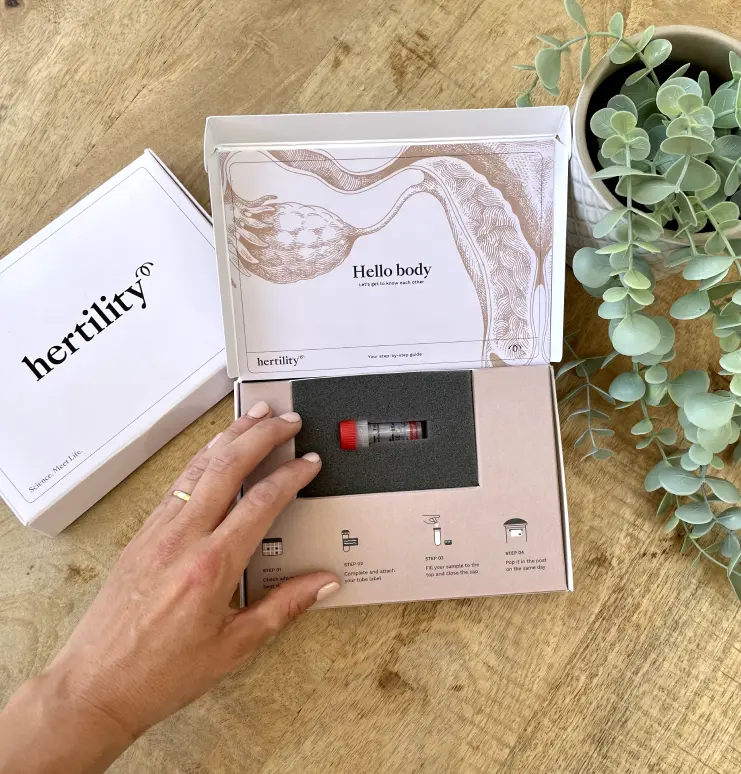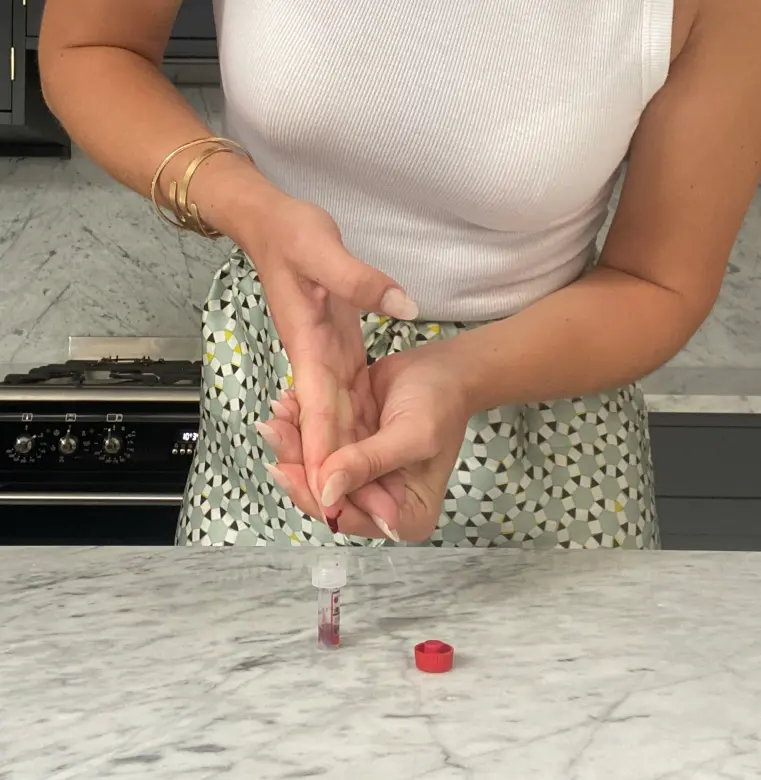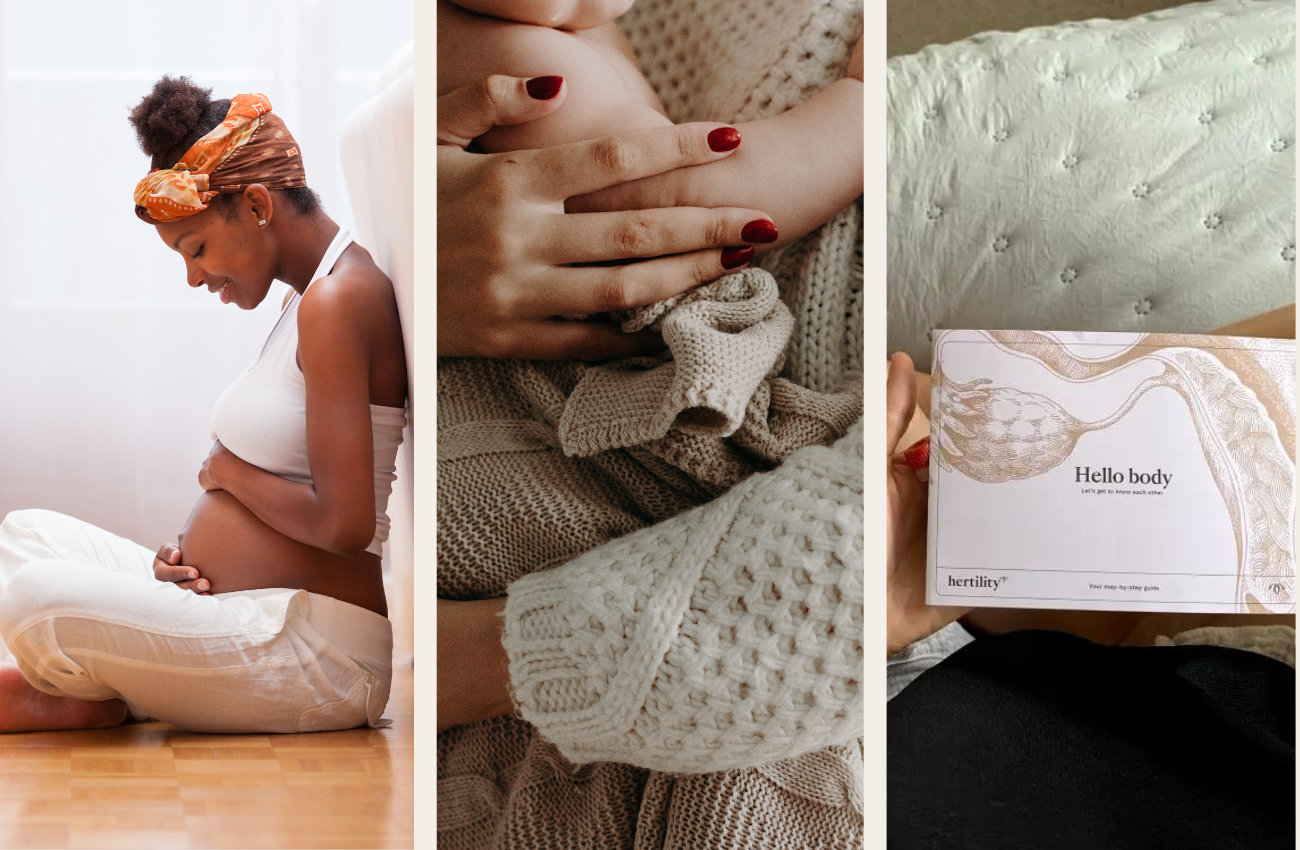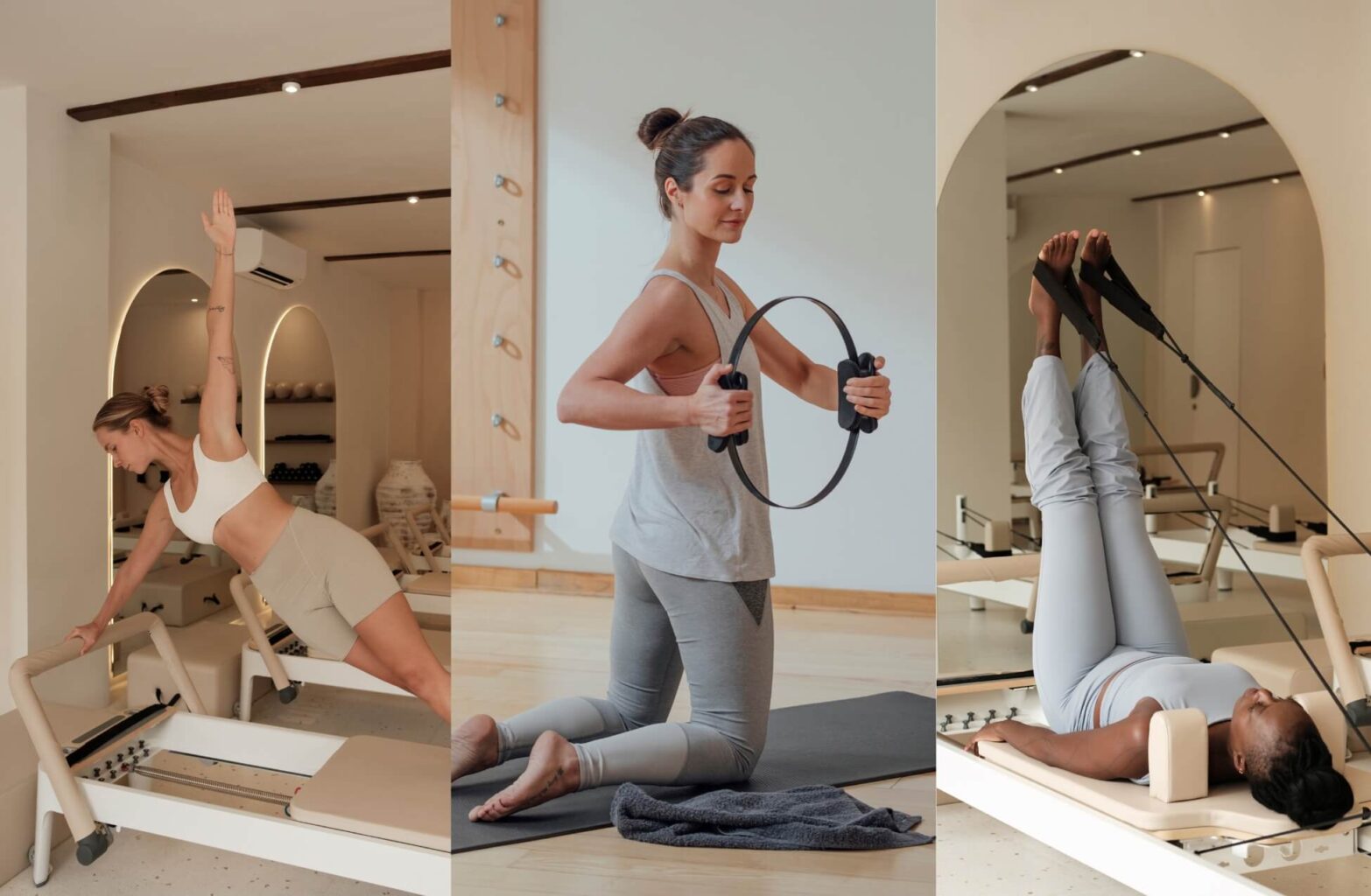For the first time, more women than ever are turning 30 without children. This means that if you want children one day and have ambition, it can be daunting to know where you stand. The NHS will look into your fertility only after you’ve unsuccessfully have been trying to fall pregnant for two years. And should you wish to go private beforehand to make sure everything is ok, you can expect to fork out hundreds if not thousands of pounds in tests. Reinventing healthcare for every ovary, Hertility is an at home hormone and fertility testing service which lets you test from the comfort of your home with results in as little as 10 days. Depending on the results of your tests, you then have the option to follow-up with a Hertility specialist consultation to discuss next steps. So whether you’re actively trying to conceive, are planning for children in the near or far future or are simply curious, Hertility is a great solution.
Fertility Statistics

Before going into the nitty-gritty, we thought we would share some interesting and revealing statistics about women’s hormones and fertility:
- 1 in 7 couples will struggle with infertility (infertility is generally diagnosed after a couple has been trying to get pregnant for over 12 months without success)
- Up to 80% of a women’s egg reserve is gone by the age of 30
- 2/3 of us have at least one hormone out of range that could be affecting our fertility
- At age 25 women have a 25% chance of falling pregnant each cycle. This drops to under 20% by age 30, 15% by age 35 and 5% by age 40.
- It takes on average 2 to 8 years to diagnose a fertility disorder
- 60% of women suffer from hormone and/or gynaecological issues
- A woman is born with all the eggs she’ll ever have, which is around 1 million. By puberty, she usually has half that and each month after puberty, she loses up to 1,000 eggs.
The purpose of sharing these statistics and becoming familiar with them is not to scare anyone. Quite the opposite. For too long, women have been dismissed by the healthcare system. How often have women been told ‘you’re too young to worry about your fertility’ only to be told ‘you left it too late’ when she struggles to conceive. How often have women just been put on the hormonal pill as a fix all solution rather than doctors bothering to search for the underlying issue. Suffer from painful periods? Just take the pill. Suffer from acne? Just take the pill. Irregular periods? Pill!
Becoming familiar with your cycle, tracking physical and mental changes throughout the month and testing your hormone levels are all hugely empowering for women in a world built around the 24 hour cycle of men. Your health is your greatest asset and don’t let anyone every dismiss this.
Hertility At-Home Hormone And Fertility Testing: How Does It Work?
It all starts with an online assessment which will ask you a series of questions about your cycle, lifestyle and overall health (this only takes about 5 minutes). The Hertility algorithm will then analyse your responses to fully customise your fertility and hormone test. Your Hertility At-Home Hormone And Fertility testing kit is then sent to your home within 72 hours and consists or lancets to prick your finger and draw a small quantity of blood to be collected. This should be done on day 3 of your cycle (or anytime if you’re on hormonal contraception). You then send your samples and test kit back for Hertility to analyse and do its magic. 10 days later you will receive a doctor-written report detailing your various results with recommendations.
Hertility At-Home Hormone And Fertility Testing: What Is Tested?
The series of tests with the Hertility At-Home Hormone And Fertility testing will vary depending on the results to your online assessment however it will be a mixture of the below:
- Anti-Müllerian Hormone (AMH): AMH is produced by your follicles—little sacs within your ovaries where your eggs are matured before they’re released during ovulation. Since the number of eggs we have decreases with age, so does AMH, which is why testing your AMH levels can give a good indication of your egg quantity at a given point in time. It can also help signal some reproductive health conditions like polycystic ovaries.
- Follicle-stimulating Hormone (FSH): FSH is produced by the brain and helps a chosen set of eggs in your ovaries to mature during the first half of every cycle, so one can eventually be released during ovulation. The lower your egg quantity, the more FSH your brain produces to compensate for having less eggs to mature, which is why monitoring it can help you understand the health of your ovaries and can signpost some reproductive health conditions like premature ovarian insufficiency (POI) and menopause.
- Luteinising hormone (LH): LH is produced by the brain. It surges mid cycle, which triggers ovulation. This is why it is vital for a healthy menstrual cycle and for your fertility. Testing it at the beginning of your cycle can help them understand if there is an imbalance in your menstrual cycle-associated hormones which may later affect ovulation. This can help screen for any underlying reproductive health conditions which disrupt ovulation such as PCOS and pituitary disorders.
- Oestradiol (E2): The main source of E2 is your ovaries, so monitoring its levels gives a good indication of how well your ovaries and menstrual cycle are working. E2 also has a big impact on your overall health and an imbalance can lead to symptoms like dry skin and hair, vaginal dryness and hot flushes. When your ovaries stop working, your levels of E2 drop significantly, which is why it can also signpost menopause and POI.
- Prolactin (PRL): Prolactin is best known for stimulating milk production during breastfeeding, however it also has a critical role in regulating your menstrual cycle. Too much prolactin can stop the production of FSH and LH, which can then stop ovulation and your periods. Testing prolactin levels can therefore help to understand if your menstrual cycle is working smoothly and if you are likely to be ovulating normally. It can also help them interpret why your FSH or LH levels might be out of range, as well as symptoms such as irregular or absent periods.
- Testosterone: Testosterone is produced by various different tissues in the female body, including the ovaries, and has a role in maintaining your levels of E2, as well as the growth and maintenance of various tissues. Monitoring our testosterone levels can help to identify the causes of symptoms such as oily skin and acne, excessive body hair, and irregular periods. High testosterone levels are useful for signposting PCOS, which is commonly associated with these symptoms.
- Sex Hormone Binding Globulin (SHBG): SHBG is a protein that helps regulate testosterone and oestrogen levels, so monitoring it helps us to interpret those hormone results, particularly if they are abnormal.
- Thyroid-stimulating Hormone (TSH): TSH is produced in the brain and has the crucial role of stimulating your thyroid to produce thyroxine (T4) which has indirect effects on the rest of the body. Monitoring it helps to screen for an overactive or underactive thyroid, which can impact your overall health including your weight, fatigue levels, mood, periods and ovulation.
- Thyroxine (T4): T4 is a hormone that is produced by your thyroid and eventually gets converted to T3, which is used by various body parts to help them function. Monitoring your T4 levels helps to screen for an overactive or underactive thyroid, which can impact your overall health including your weight, fatigue levels, mood, periods and ovulation.
- Triiodothyronine (T3): Monitoring FT3 levels helps to screen for an overactive or underactive thyroid, which can impact your overall health including your weight, fatigue levels, mood, periods and ovulation.

I Have My Hertility At-Home Hormone And Fertility Testing Results, Now What?
There’s no denying that knowledge is power. Finding out if you have any hormonal or fertility issues and what these are is hugely empowering for women and allows you to understand yourself better. Hertility offers a follow-up service at a cost if you wish to discuss your results with a consultant and find out next steps. These can range from egg freezing, to IVF or treatment depending on your results and what steps you wish to take (if any).
Finding out about your egg reserve in particular can help you plan better for the future, take the pressure off or conversely allow you to take steps such as egg freezing to ensure that you’re not pressuring yourself to have children straight away out of sheer biological necessity. Many women who have not yet found the right partner may also decide to use sperm donors if they find out that their egg reserve is getting very low.
Does Hertility Offer Other Services?
Hertility have three options when it comes to booking an online doctor consultation:
- Hormone and Fertility consultation: On-demand access to our fertility expert, without needing to take an at-home test (£39 for 20min).
- Nutritional support: Optimise your nutrition and lifestyle, whether you’ve taken an at-home test or not (£99 for 60min).
- Fertility Counselling: Whether you decide to test your hormones with Fertility or not, they are here to help you through every step of your fertility journey (£85 for 50min).
In addition to the Hertility At-Home Hormone And Fertility testing kit, Hertility will also soon launch their Menopause Monit-HER Test. Aimed at women who have started the menopause, the test will be able to give you insight and accompany you along this journey. The Menopause Monit-HER test will help with:
- Assessing which stage of the menopause you are currently in
- Testing of: oestrogen and testosterone levels, FSH, LH, TSH, Free Thyroxine, SHBG, HbA1c, Lipid profile, Vitamin D
- Any current HRT or treatment review and optimisation
- On-demand access to menopause doctors
- Screen for 5 health conditions associated with menopause
- Referrals and prescriptions available from next day




